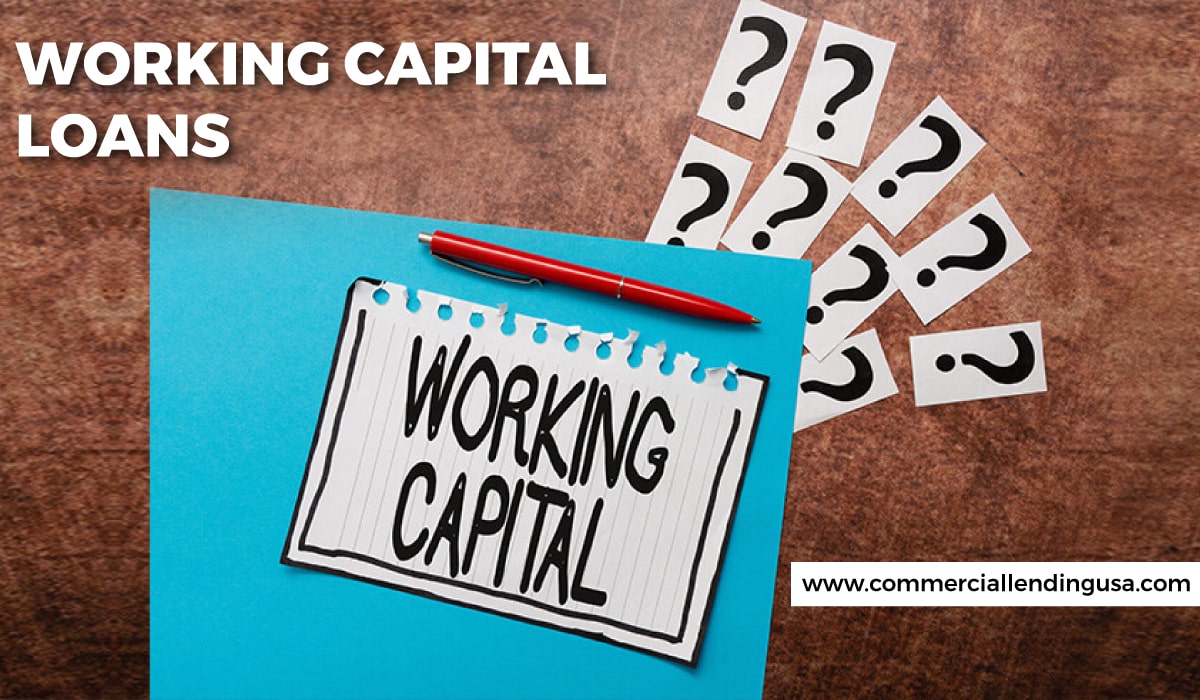
Working Capital Loans: The Definitive Guide
Working capital is a company's money to run its day-to-day activities. A company's ability to work effectively depends on the smooth flow of working capital. As a result, you might take out a Working Capital Loan to ensure your business runs smoothly. This article will cover the concept of Working Capital Loans and other related topics.
Benefits of Working Capital Loan

The working capital loan funds a company's day-to-day operations, such as paying employees' paychecks and settling accounts receivable. Because not all businesses have steady sales and revenue across the year, money may be needed to keep things going.
This is usually the case for companies who have seasonal trade flows or seasonal sales, but some others may need a loan around the holidays or periods of lesser company activity. Such loans can be unsecured or secured depending on the lending rates and the firm's financial stability. This means you may or may not be obliged to complete implementations to acquire the loan.
A Working Capital Loan is a business loan used to cover your immediate contractual needs and standard operating procedures. It is not intended to aid your corporate investment or equity investment objectives.
Short-term liabilities might include quarterly maintenance payments to day-to-day expenditures, raw material purchases, and supply chain management. These are just a few of a company's short-term operational requirements. Your short-term needs are met with the support of a Working Capital Loan, giving you more time to strategize and emphasize your long-term objectives.
Features of Working Capital Loan

Small and medium-sized businesses typically use working capital loans with a term of 6 to 48 months. This period, however, varies by bank. Individual banks always choose the rate of interest on the Working Capital Loan. The loan amount granted varies from bank to bank; your company revenue is a parameter considered when determining the loan amount.
Amount of the loan: A Working Capital Loan's loan size is determined by the company's needs, experience, and duration. It differs and is tailored to the business's specific financial requirements.
Rate of Interest: The interest rate on a Working Capital Loan varies by bank and is tailored to the borrower's specific requirements.
Collateral: Working capital loans can be guaranteed or unprotected, so you don't have to use any collateral to get the money. Property, stocks, gold, investments, and the firm itself might be used as collateral. The bank tailors the Working Capital Loan to the borrower's ability to provide collateral. To establish your eligibility for an unsecured Working Capital Loan, needed favorable rates on your economic accounts, credit score, and tax returns.
Repayment: The repayment plan for the loan is tailored to the company's cash flow.
Criteria for Age: The age requirements for applying for a loan are another consideration. Borrowers should be at least 21 years old and no older than 65.
Fee for processing: To process your application for a working capital loan, banks charge a fee. Every bank charges a different cost.
Applicability of the Loan: Suppose you are an entrepreneur, a private or public corporation, a partnership firm, a single proprietor, a small business, a self-employed professional or non-professional, or a self-employed professional or non-professional. In that case, you can request a Working Capital Loan.
Working Capital Loan Categories

Working capital loans are available in a number of different forms.
Term or Temporary loans: Term loans are typically used to fund expansions but can also provide short-term working capital. Term loans provide a lump sum of money upfront that you pay back over a predetermined time with fixed, periodic installments.
Commercial credit lines: A credit line is more flexible than a term loan because you can borrow fees up to a monthly payment and only make payments on what you've borrowed. You can withdraw and repay monies as often as you want, if you pay on time and don't exceed your credit limit.
Loans from the Small Business Administration: The US Small Business Administration guarantees these loans, made available through partner banks, credit unions, and online lenders. Working capital, growth, or infrastructure investments are all possible with SBA loans of up to $5 million.
Factoring invoices: Whether you have unpaid invoices from clients, this financing allows you to convert the invoices into quick working capital. The factoring provider purchases your invoices for an initial payment (less a charge), and it is paid when your customer pays you.
There are no truly unsecured loans, even though all working capital loans are safeguarded or secured in some fashion. As a result, the debate is no longer about how a loan is unsecured or secured and more about what constitutes securing a loan.
How Do Banks Guaranteed Loans?

Banks guarantee loans by transferring 100% of the risk – or more than 100% – to their clients through the use of collateral.
This is because banks frequently undervalue collateral. As a result, equipment that is readily about $50,000 on the marketplace may be "appraised" at $35,000 by banks.
The goal for banks isn't to seize control of these assets. Yet, when it becomes necessary, they'll want to be well-protected so that they don't just break even but potentially make a profit.
Client's creditworthiness, the proportionality of their desired loan size, and how their firm is on schedule for future success are all factors banks use to secure loans. As a result, we do not turn away customers with poor credit or a history of bankruptcy, nor do we take years and years of credit records. The experts only need to see the connection for a few months to determine if it will work.
If You Need Working Capital Loan, Apply Here!
Sam Haq, CEO
Commercial Lending USA
www.commerciallendingusa.com
0 Comments
Leave A Comment